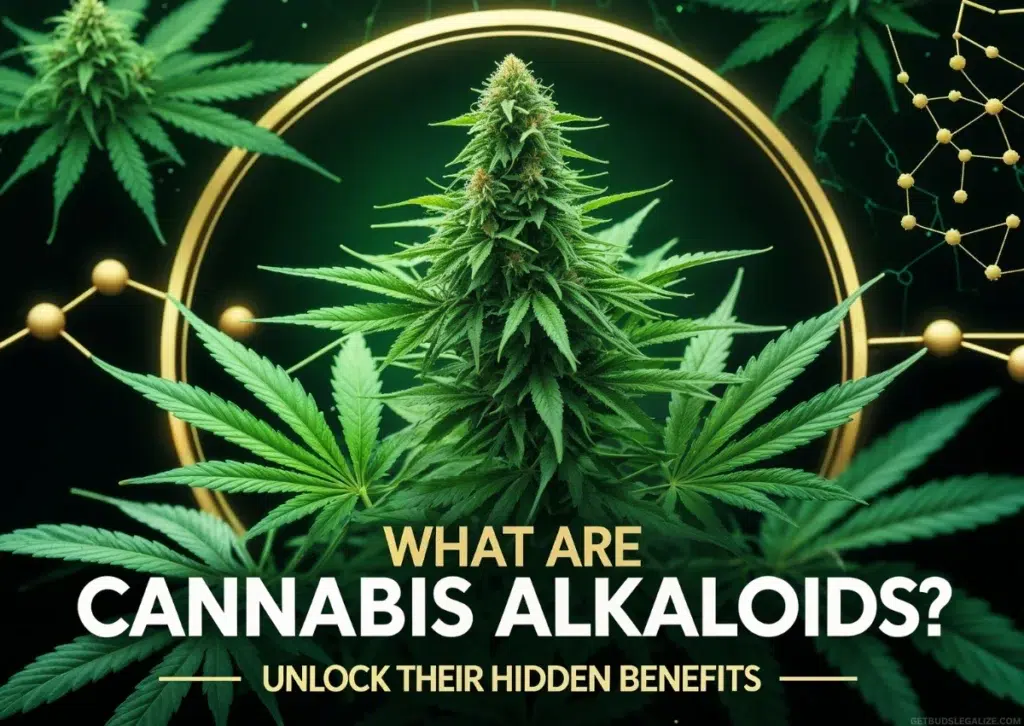Can CBD Help Treat Alcohol Use Disorder? A Groundbreaking Study on Addiction Recovery
Alcohol Use Disorder (AUD) is a chronic condition affecting millions worldwide, often leading to severe health consequences, emotional distress, and social challenges. Traditional treatments, including therapy and medication, do not always prevent relapses, so searching for alternative solutions is crucial.
Cannabidiol (CBD) could represent a breakthrough in the treatment of alcoholism, offering an effective solution to reduce alcohol cravings and prevent relapses. A recent study published in Molecular Psychiatry has revealed that a single dose of CBD can significantly influence the behavior of those struggling with AUD.
How CBD Could Revolutionize Alcohol Addiction Treatment
Relapses are one of the main obstacles in the recovery process for patients with AUD. Many current treatments focus on managing withdrawal symptoms but do not always prevent a return to alcohol abuse. The discovery of CBD’s anti-craving effect could revolutionize the therapeutic approach to addiction.
Previous preclinical studies have already suggested that CBD could have a positive impact on reducing compulsive alcohol cravings. However, there has been a lack of extensive research on humans—until now.
This gap has been filled by the study, the first to concretely demonstrate CBD’s therapeutic potential against alcoholism.

How CBD Reduces Alcohol Cravings: Key Findings from Recent Research
The study tested 28 adults with Alcohol Use Disorder (AUD), dividing them into two groups: one received 800 mg of CBD, and the other a placebo. Afterward, researchers measured their responses to alcohol cues, alcohol cravings, and brain activity.
Key Findings:
- Reduced alcohol cravings: Participants who received CBD showed fewer cravings compared to the placebo group.
- Lower relapse risk: CBD reduces brain activity in the nucleus accumbens (NAc), a key area involved in addiction.
- Better stress response: CBD helped participants handle stress, which often triggers relapse.
Brain activity was measured using functional MRI (fMRI), and researchers found that CBD significantly reduced activation of the NAc, which is fundamental to reward and addiction mechanisms. Participants who received CBD showed lower levels of brain activity in response to alcohol-related stimuli, helping them manage cravings and stress.
Key Insights and Implications
The study also revealed that higher CBD blood levels were linked to significantly reduced cravings and decreased NAc activation. The participants tolerated CBD well, with no significant side effects, making it a promising and safe option for those battling AUD.
However, it’s important to note that the sample size was small, which may limit the generalizability of the findings.
Challenges and Considerations in Using CBD for Alcohol Addiction
Although the results are encouraging, there are several important considerations:
- Long-Term Effects Unknown: More research is needed to determine whether CBD’s benefits persist over months or years of use.
- Optimal Dosage Not Yet Established: While 800 mg was used in this study, future trials should explore different dosages to find the most effective amount.
- Combination With Other Treatments: It remains to be seen whether CBD could be used alongside other therapies for AUD, such as cognitive-behavioral therapy or FDA-approved medications.
- Legality and Accessibility: CBD regulations vary by country and state, affecting its availability for patients who could benefit from it.

Addressing Common Concerns About CBD for AUD
Some readers may have concerns about using CBD for alcohol addiction treatment. Let’s address some of the most common questions:
- Will CBD get me high? No. Unlike THC, CBD is non-psychoactive and won’t produce any intoxicating effects.
- Can CBD interact with other medications? Possibly. It’s important to consult a healthcare provider before using CBD, especially if you’re on other medications.
- Is CBD approved for addiction treatment? Not yet, but research is ongoing, and its therapeutic potential is promising.
What’s Next? The Future of CBD Research in Alcohol Addiction
The study’s results pave the way for new therapeutic possibilities in treating alcoholism. However, further research is needed to determine:
- The optimal dosage for maximizing CBD’s beneficial effects.
- Whether CBD can be used in combination with other pharmacological or psychotherapeutic treatments.
- The long-term effectiveness of CBD in preventing relapses.
- How CBD compares to existing medications for AUD in terms of efficacy and safety.
With increasing scientific interest in CBD and its applications, more studies are likely to be conducted in the coming years to understand its potential in addiction treatment fully.
Final Thoughts: Could CBD Be a Game-Changer in Alcoholism Treatment?
CBD is emerging as a promising tool in the fight against Alcohol Use Disorder (AUD). Research suggests it may help reduce alcohol cravings and addiction-related brain activity—all without major side effects.
While more studies are needed, these findings offer new hope for those struggling with alcoholism. If future research confirms CBD’s potential, it could revolutionize addiction treatment by providing a safer, more effective alternative for millions.
📢 Stay Informed: Subscribe to our newsletter for the latest updates on CBD research and addiction treatment.
✅ Considering CBD for recovery? Always consult a healthcare professional to see if it’s right for you.
Frequently Asked Questions (FAQs) about Using CBD for Treating Alcoholism
Alcohol Use Disorder (AUD) is a medical condition that leads to the inability to control drinking alcohol, resulting in serious consequences for health, relationships, and day-to-day functioning.
Alcohol dependence can vary in severity, from mild to severe, and often requires long-term management and treatment. This chronic condition is linked to various mental health issues, including depression and anxiety.
CBD, or cannabidiol, interacts with the brain’s endocannabinoid system, which regulates important functions like mood, stress response, and addiction.
By addressing these factors, CBD can help reduce cravings for alcohol and alleviate stress responses, making it a promising treatment for substance abuse.
This effect may significantly benefit those battling alcohol withdrawal and cravings associated with heavy drinking.
The study found that a single 800 mg dose of CBD significantly reduced alcohol cravings and brain activity associated with addiction.
Participants who took CBD reported fewer cravings and better stress management compared to those who received a placebo.
This study provides valuable insights into how CBD could support individuals recovering from binge drinking and heavy drinking patterns.
Yes, CBD can play a role in reducing the risk of relapse in Alcohol Use Disorder.
By lowering the activation of the brain’s reward center, the nucleus accumbens (NAc), CBD helps manage cravings and improve stress response, both of which are critical in preventing relapse.
It shows promise as a tool for those trying to stay sober and maintain long-term recovery.
The study found CBD to be well tolerated, with no significant side effects noted.
While CBD holds great potential, further research is necessary to evaluate its long-term safety and effectiveness, especially when used alongside traditional AUD treatments such as therapy and medications.
The study used 800 mg of CBD, but this amount might not be optimal for everyone.
Ongoing research is exploring the ideal dosage that would be most effective in managing alcohol cravings and supporting long-term recovery.
Different dosages may be needed depending on individual needs and severity of alcohol withdrawal symptoms.
There is potential for CBD to be used alongside other therapies, such as support groups, cognitive-behavioral therapy, or FDA-approved medications.
CBD may enhance the effectiveness of these treatments by targeting the underlying psychological triggers of addiction, such as stress and cravings.
Further research is needed to confirm how best to combine CBD with traditional treatments.
The legality of CBD varies depending on location, so it is essential to check local regulations before considering CBD for treating Alcohol Use Disorder.
In many regions, CBD is legal, but specific laws and restrictions can vary based on state or country.
Initial research suggests that CBD may help treat substance abuse and other forms of addiction, including opioid and nicotine addiction.
It works by reducing cravings and withdrawal symptoms, much like it does for alcohol cravings.
However, more studies are necessary to confirm its effectiveness for these other addictions.
CBD is generally well tolerated, with few side effects reported in the ICONIC study. However, individual responses can vary, and it’s crucial to consult a healthcare professional before using CBD, especially if other treatments for alcohol withdrawal or heavy drinking are involved.
While the research is promising, more clinical trials are needed to determine the long-term effects of CBD in treating Alcohol Use Disorder.
Until more data is available, patients should consult with healthcare providers to explore other alcohol addiction treatment options.
Traditional treatments often focus on managing the physical symptoms of alcohol withdrawal or preventing relapses. CBD, on the other hand, addresses the cravings and stress responses that are central to alcohol addiction.
While it may not replace traditional therapies, CBD could offer a complementary treatment that enhances the effectiveness of existing recovery strategies.
Unlike THC, which causes psychoactive effects, CBD does not impair judgment or cause a high. It’s a non-intoxicating substance, making it a safer alternative for people recovering from alcohol addiction who may need to remain alert and focused.
Several factors contribute to the development of Alcohol Use Disorder, including genetics, environment, mental health conditions, and a history of heavy drinking.
Understanding these factors can help individuals and healthcare providers create effective treatment plans.

















